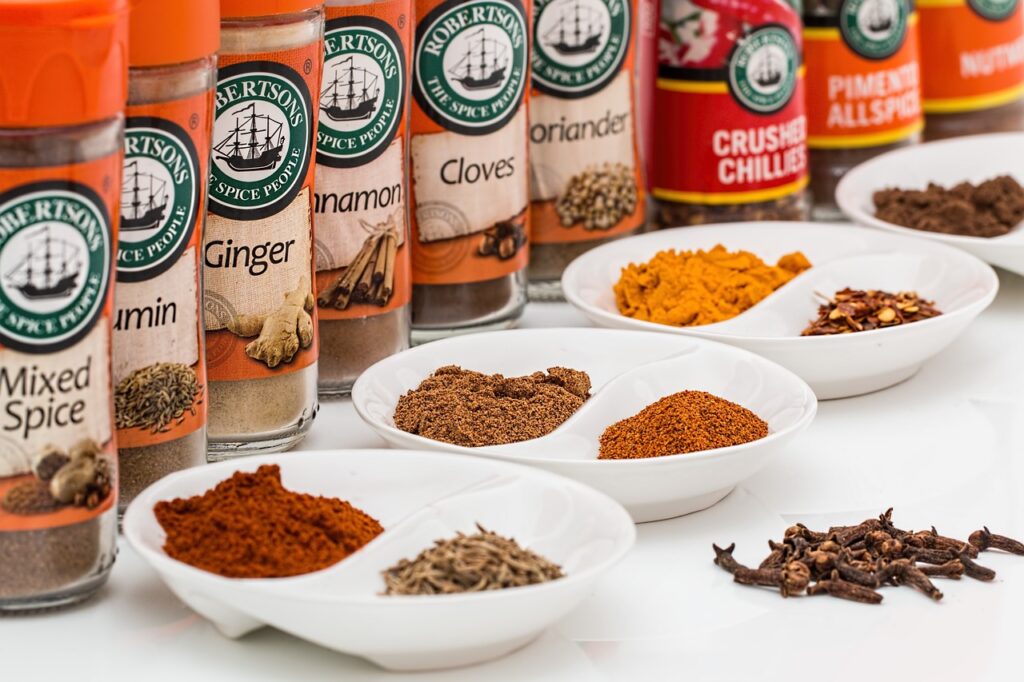Are you struggling with arthritis pain and looking for a natural remedy? Look no further than the incredible benefits of ginger. Ginger, known for its spicy flavor and medicinal properties, has been used for centuries to alleviate various ailments, and arthritis pain is no exception. In this article, we will explore the key benefits of using ginger to relieve arthritis pain, providing you with a natural and effective solution to ease your discomfort. Say goodbye to constant aches and discover the wonders of ginger for yourself.

Reduces inflammation
Ginger’s anti-inflammatory properties
Ginger has long been recognized for its anti-inflammatory properties, making it a popular natural remedy for those suffering from arthritis pain. The main active compounds in ginger, such as gingerols and shoals, have been found to inhibit the production of certain chemicals in the body that cause inflammation. By reducing inflammation, ginger can help alleviate the swelling, pain, and stiffness associated with arthritis.
Studies showing reduction of inflammation with ginger
Numerous studies have been conducted to investigate the anti-inflammatory effects of ginger. In a study published in the Journal of Medicinal Food, researchers found that ginger extract inhibited the production of inflammatory compounds in joint cells, suggesting its potential as a therapeutic agent for arthritis pain. Another study published in the Journal of Nutrition found that ginger extract significantly reduced inflammation markers in overweight individuals, indicating its broader anti-inflammatory effects.
Comparison of ginger with other anti-inflammatory drugs
While traditional nonsteroidal anti-inflammatory drugs (NSAIDs) are commonly used to reduce inflammation in arthritis patients, they often come with undesirable side effects, such as stomach ulcers and gastrointestinal problems. Ginger, on the other hand, has been shown to possess similar anti-inflammatory effects without the adverse reactions associated with NSAIDs. This makes ginger a safer and more natural alternative for managing inflammation in arthritis patients.
Relieves pain
Ginger’s analgesic properties
Beyond its anti-inflammatory effects, ginger is also known for its analgesic properties, meaning it can help alleviate pain. The compounds found in ginger can interact with the body’s pain receptors, reducing pain sensations and providing relief to individuals suffering from arthritis pain.
Research on ginger’s pain-relieving effects
Several studies have investigated the pain-relieving effects of ginger. A study published in the Journal of Natural Products reported that ginger extract exhibited significant analgesic activity in animal models of pain. Another study published in the Journal of Alternative and Complementary Medicine found that ginger supplementation reduced pain intensity and duration in individuals with primary dysmenorrhea, highlighting its potential in managing pain.
Comparison of ginger with traditional pain medications
While conventional pain medications, such as opioids and non-opioid analgesics, are commonly prescribed for arthritis pain, they can lead to dependence and have adverse side effects. Ginger, on the other hand, has been shown to be a safe and effective alternative for pain relief, without the risk of dependency or significant side effects. Incorporating ginger into your pain management routine may offer a natural and gentler approach to reducing arthritis-related pain.
Improves joint mobility
Ginger’s role in improving joint flexibility
One of the key challenges for individuals with arthritis is maintaining joint mobility. Ginger has been found to play a role in improving joint flexibility by reducing inflammation and pain, which can help individuals regain and maintain their range of motion.
Studies demonstrating ginger’s effectiveness in increasing mobility
Research has demonstrated ginger’s effectiveness in improving joint mobility. A study published in the Journal of Medicinal Food found that ginger extract reduced joint swelling and improved joint function in individuals with osteoarthritis. Another study published in the Journal of Ethnopharmacology observed that ginger extract improved joint flexibility and reduced pain in patients with rheumatoid arthritis.
Comparison with other natural remedies for joint stiffness
While there are various natural remedies available for managing joint stiffness, ginger stands out due to its dual action of reducing inflammation and improving joint mobility. Unlike some remedies that may only provide temporary relief, ginger targets the underlying causes of joint stiffness, making it a valuable option for individuals looking to enhance their mobility and quality of life.
Enhances blood circulation
Ginger’s impact on blood flow
Good blood circulation is crucial for delivering oxygen and nutrients to the body’s tissues, including those affected by arthritis. Ginger has been found to have a positive impact on blood flow, helping to enhance circulation and support overall joint health.
Research on ginger’s ability to improve circulation
Studies have investigated ginger’s ability to improve blood circulation. A study published in the Journal of Cardiovascular Pharmacology found that ginger extract promotes vasodilation, which widens blood vessels and improves blood flow. Another study published in the Journal of Nutritional Biochemistry reported that ginger supplementation improved blood circulation markers in overweight individuals.
Comparison of ginger with pharmaceutical options for blood circulation
While pharmaceutical options for improving blood circulation exist, they often come with potential side effects and risks. Ginger offers a natural alternative to pharmaceuticals and has been shown to improve blood circulation without the adverse reactions associated with medications. Incorporating ginger into your daily routine may support healthy blood flow and contribute to overall joint health.

Boosts immune system
Ginger’s immune-boosting properties
A strong immune system is essential for individuals with arthritis, as it helps protect against infections and enhances the body’s ability to heal. Ginger has immune-boosting properties, making it a valuable addition to the diet for individuals looking to support their immune system.
Studies supporting ginger’s positive effects on the immune system
Research has highlighted the positive effects of ginger on the immune system. A study published in the Journal of Agricultural and Food Chemistry reported that ginger extract increased the production of immune-boosting compounds in cells. Another study published in the Journal of Nutritional Science and Vitaminology found that ginger extract enhanced immune response in individuals with HIV.
Comparison with other natural remedies for immune support
While there are various natural remedies available to support the immune system, ginger stands out for its wide range of health benefits and immune-boosting properties. Ginger can be easily incorporated into the diet and offers a natural and accessible way to strengthen the immune system.
Reduces oxidative stress
Role of ginger in reducing oxidative stress
Oxidative stress, caused by an imbalance between free radicals and antioxidants in the body, plays a role in the development and progression of arthritis. Ginger has been found to reduce oxidative stress by providing potent antioxidants, helping to protect joints from damage.
Research on ginger’s antioxidant properties
Numerous studies have investigated the antioxidant properties of ginger. A study published in the Journal of Medicinal Food found that ginger extract exhibited strong antioxidant activity, protecting cells from oxidative damage. Another study published in the Journal of Ethnopharmacology reported that ginger extract reduced oxidative stress markers in patients with osteoarthritis.
Comparison of ginger with other antioxidants for arthritis
While there are other antioxidants that can help reduce oxidative stress, ginger offers a unique combination of antioxidant compounds, such as gingerols and shoals, which have been specifically linked to arthritis-related inflammation and joint damage. Incorporating ginger into your diet may provide additional protection against oxidative stress and contribute to overall joint health.

Minimizes side effects
Ginger’s safety profile
A significant advantage of using ginger for arthritis is its favorable safety profile. Ginger is generally well-tolerated by most individuals and does not typically cause significant side effects when consumed in moderate amounts.
Studies on ginger’s minimal side effects
Researchers have conducted studies to assess the safety of ginger. A review published in the Journal of Pain Research analyzed multiple studies and concluded that ginger is safe for short-term use. Another study published in the Journal of the Medical Association of Thailand found that ginger capsules did not cause significant side effects in patients with osteoarthritis.
Comparison of ginger with common arthritis medications
Many conventional medications commonly used for arthritis pain management come with potential side effects, such as gastrointestinal problems, liver damage, and increased risk of cardiovascular events. Ginger, in comparison, offers a natural and safe alternative with minimal side effects. It can be a suitable choice for individuals looking to avoid or reduce their dependence on traditional arthritis medications.
Supports digestive health
Ginger’s positive impact on digestion
Digestive issues can often accompany arthritis, as certain medications and inflammatory processes can affect the gastrointestinal system. Ginger has been found to have a positive impact on digestion by soothing the digestive tract, reducing inflammation, and improving overall digestive health.
Research on ginger’s ability to soothe digestive issues
Studies have explored the digestive benefits of ginger. A study published in the World Journal of Gastroenterology found that ginger reduced symptoms of dyspepsia, including bloating and indigestion. Another study published in the Journal of Food Science reported that ginger extract protected against the development of gastric ulcers in animal models.
Comparison with other natural remedies for digestive problems
While there are various natural remedies available for digestive issues, ginger offers a comprehensive approach by targeting multiple aspects of digestive health. Ginger’s ability to soothe the digestive tract, reduce inflammation, and protect against ulcers makes it a valuable addition to the diet for individuals suffering from arthritis-related digestive problems.
Provides natural alternative
Ginger as a natural alternative to pharmaceutical options
As individuals increasingly seek natural alternatives for managing their health conditions, ginger emerges as a viable option for arthritis pain relief. With its wide range of health benefits and minimal side effects, ginger offers a natural alternative to pharmaceutical options for individuals looking for a more holistic approach to managing arthritis symptoms.
Evidence supporting the use of ginger as an alternative remedy
Research and anecdotal evidence support the use of ginger as an alternative remedy for arthritis pain. Multiple studies have highlighted ginger’s anti-inflammatory, analgesic, and immune-boosting properties, making it a valuable addition to one’s arthritis management plan. Additionally, many individuals have reported positive experiences with ginger, citing reduced pain and improved joint mobility.
Comparison of ginger with pain relief methods
When compared to other pain relief methods, ginger offers several advantages. Unlike pharmaceutical options, ginger is more accessible, affordable, and carries minimal side effects. Additionally, ginger’s multi-faceted approach, targeting inflammation, pain, and immune support, makes it a comprehensive and natural alternative for managing arthritis pain.
Tips for consuming ginger
Recommended daily intake of ginger for arthritis
While there is no specific recommended daily intake of ginger for arthritis, incorporating ginger into your daily routine can contribute to its potential benefits. It is generally advised to consume around 1-3 grams of ginger daily, which can be achieved through fresh ginger, ginger tea, or ginger supplements. However, it is recommended to consult with a healthcare professional or a registered dietitian to determine the appropriate intake considering individual health conditions and potential interactions with other medications.
Different forms of ginger for consumption
Ginger can be consumed in various forms to suit personal preferences and incorporate it into the diet. Fresh ginger can be used in cooking, added to smoothies, or grated into hot water to make ginger tea. Ginger capsules and supplements are also available for those who prefer a more convenient option.
Recipes and ideas for incorporating ginger into the diet
Incorporating ginger into your diet can be both delicious and beneficial for arthritis pain relief. Try adding grated ginger to stir-fries, soups, or salad dressings for an extra kick of flavor. Ginger can also be used in baking, adding a warm and aromatic taste to cookies, cakes, and bread. Enjoy a hot cup of ginger tea by steeping fresh ginger in boiling water for a soothing and comforting beverage. The possibilities are endless when it comes to incorporating ginger into your daily meals and snacks.
